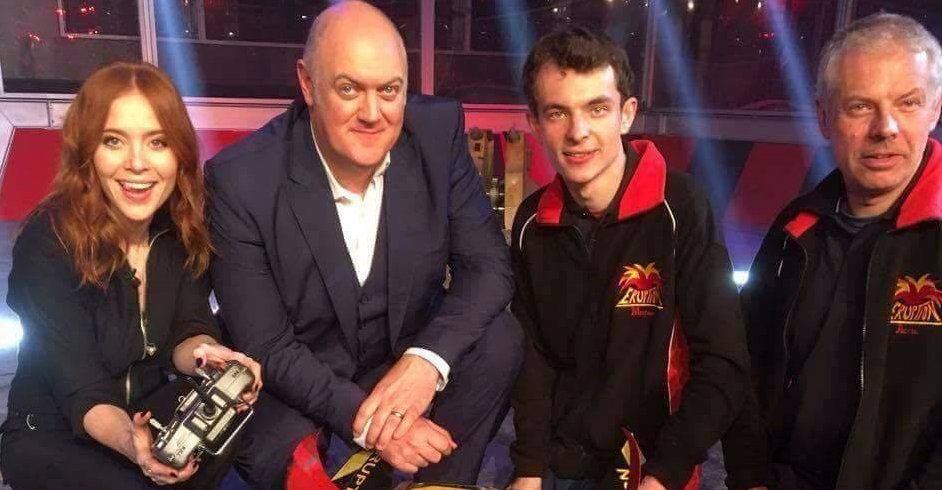Champion Engineers – Durham University
Durham University Engineering student Michael Oates finally achieved his childhood ambition to win Robot War. Here he explains how this BBC programme inspired him.

If ever a programme did what it said on the tin, it’s Robot Wars. Metal warriors controlled by roboteers of all ages and backgrounds, battling it out in a hazardous arena watched by roaring fans. It’s a gladiatorial contest between fearsome protagonists armed with weaponry that ranges from the terrifying to the – well – bizarre.
Robot Enthusiasts
Robot Wars is the tip of the fighting robot iceberg in the UK, where enthusiasts take part in live robot battles all around the country. Team Eruption has fought in many of these events and gained valuable experience which stood them in good stead when facing RW veterans like Apollo and Carbide. Participating in these events for the past 10 years or so has enabled Michael to learn a lot about working with people from an early age.
“It’s highly competitive and people really want to win, but at the same time there’s a camaraderie amongst teams that you rarely find elsewhere, and that’s really enjoyable. In a team, you have to be able to work together and take on complementary roles. That’s not the usual father and son relationship but we have made it work. You have to learn to adapt, to learn from losing and take the lessons forward, and to be able to get on with a wide range of people.”
The robots battling it out in the final used markedly different weaponry. Carbide was a spinner, whilst Eruption had a powerful flipper that could flip opponents, even throwing them right out of the arena. According to the Robot Wars website :”At its maximum speed, the impact of a hit from Carbide’s blade has 60 times more energy than a sniper bullet.” The audience in the Robot Wars arena protected by bullet-proof glass, and watching the bouts as the robots fight, it’s easy to see why this is necessary. This is entertainment, but it’s also serious engineering.
STEM Skills
Teams adapt their robots according to the opponents they have drawn, and this often requires technical modifications to be made with little notice. Clearly, designing and fabricating these beasts draws upon a combination of STEM skills that require the builders to have a high level of competence in maths and technical skills. But in addition to that, Team Eruption needed strategic skills and resourcefulness, as well as the ability to drive the robot.
Michael’s driving skills were frequently admired, but when this comes up he bursts out laughing. “I’m alright at driving the robot but I’m hopeless in a car,” he admits. “With Eruption, the controls are so sensitive that a tiny movement is enough. In a car I do the same and it just doesn’t go round the corner!”
Roboteers taking part in the programme are well aware of the influence they have on younger viewers.
“A few people have referred to Robot Wars as a national treasure,” comments Michael. “I’m conscious that for me, it had a huge impact on my life and probably is the reason why I’m studying engineering today.”
The programme is proving to be inspirational for schools and colleges as well, with more pupils keen to build robots from kits or even work in teams to design their own with help from teachers and other mentors, as Michael did as a child with his father.
“It’s not just the TV programme – competing in the live events is a huge thrill and I love it – even though it’s almost like a part-time job”, he comments.
“I also love the idea that mums and dads are taking their sons and daughters along so that they’ll see how exciting engineering can be. And I’m proud to be a part of that.”
